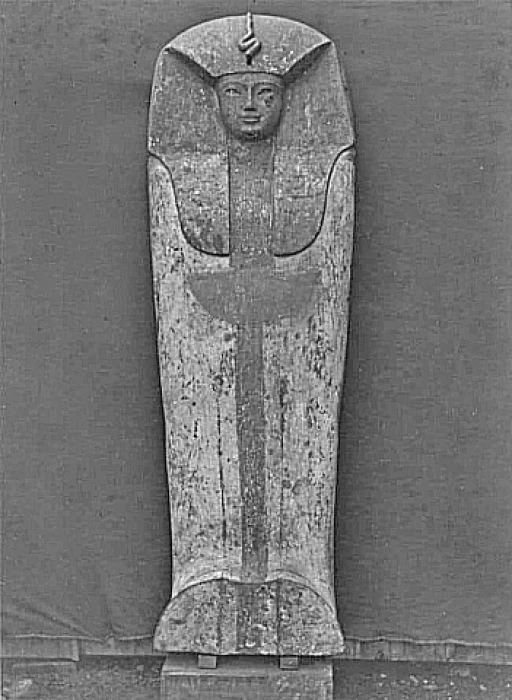
King Seqenenre
King Seqenenre
The king “Sqnananre” is considered one of the greatest and most glorious kings of Egypt in the country's history, and he is one of the kings of the XVII dynasty that used to rule southern Egypt only, from the region Thebes Luxor is now, and during the difficult period of the rule of Egypt, the country was under the occupation of the hateful Hyksos.
Seqenenre Egypt
The actual struggle began to expel the Hyksos from Egypt, during the reign of King Sqnananre, and to rid the country of the foreign occupier, who had been burdening it for a long period of time, and for his great struggle, he became one of the most prominent martyrs of Egypt throughout the ages, since his body was discovered in the cache of the monastery Al-Bahri in 1881 AD, one year before the British occupation of Egypt.
He fought in the early wars of liberation when he was a prince of Thebes at the time of the Hyksos occupation of Egypt and offered his soul as a sacrifice to liberate the country from this occupation, and his son Kamus and his brother Ahmose have great merit to the confront the Hyksos rulers and drive them out of Egypt.
The mummy of King "Sqnananre" was found in the Deir al-Bahari hideout, which was discovered in 1881, so this discovery becomes extremely important not because of the mummy, the papyri, and the statues, but let's find this time. On his body to give us a glimpse of him. This mummy is exhibited in the Egyptian Museum in Tahrir Square until it is transferred for a few days to the National Museum of Civilizations, and its death appears as a result of its wounds in the battle of honor, and this matter was confirmed after some weapons used by the Hyksos were tested and matched with most of the skull wounds, as well as the poor embalming that was done to this mummy, due to the speed of embalming it on the battlefield.
The Salian Papyrus, which confirms the disappearance of Seqnenre from the historical records, confirms his death in the first stage of this struggle, and after him, his son, King Kames, one of the liberation heroes who had not yet found his mummy, took over the matter after which his other son took over “Ahmose,” the hero of liberation immortalized by historical narratives, after securing Egypt's borders and forming a strong army that protected Egypt from dangers.
Latest Articles
Admin
Seabourn Sojourn Cruise Stops in Safaga Port
The Seabourn Sojourn, the flagship vessel of Seabourn Cruise Line's ultra-luxury fleet, was built in 2008 at the T. Mariotti shipyard in Genoa, Italy. Measuring 198 metres, it can accommodate up to 450 guests in its 225 spacious all-suite staterooms.
Admin
Norwegian Sky Cruise Stops in Safaga Port
Norwegian Cruise Line operates a cruise ship called the Norwegian Sky. It was constructed in 1999 and can accommodate 2,004 passengers in addition to 878 crew members. The ship has several dining establishments, lounges and bars, a spa and fitness center, swimming pools, and a number of entertainment areas.
Admin
Explora II Cruise Stops in Safaga Port
Explora II, the second vessel in the Explora Journeys fleet, sets sail in 2024 to redefine luxury cruising. With 461 ocean-front suites, 9 culinary experiences, and 4 pools, this haven of sophistication and sustainability promises an unforgettable "Ocean State of Mind" journey to inspiring destinations.
Admin
Mein Schiff 6 Cruise Stops in Safaga Port
The Mein Schiff 6 is the latest cruise ship in the renowned TUI Cruises fleet, offering passengers a luxurious and sophisticated cruise experience. At 315 metres long, this floating resort features a range of dining options, entertainment, and recreational facilities, including a spa, fitness centre, and sports amenities.
Admin
Mein Schiff 4 Cruise Stops in Safaga Port
When the Mein Schiff 4 cruise ship docks in Safaga, Egypt, passengers are granted access to a realm of ancient wonders. Aboard this state-of-the-art vessel, guests can embark on meticulously curated shore excursions that showcase the region's most iconic landmarks, including the Giza Pyramids, the enigmatic Sphinx, and the remarkable tombs and temples of the Valley of the Kings in Luxor.
Admin
MS Europa Cruise Stops in Safaga Port
The Silver Moon, Silversea's latest flagship, is a luxury cruise ship that offers an exceptional travel experience for Venezuelans exploring Egypt. With a capacity of 596 guests and an impressive 40,700 gross tonnes, the Silver Moon maintains the small-ship intimacy and spacious all-suite accommodations that are the hallmarks of the Silversea brand.













